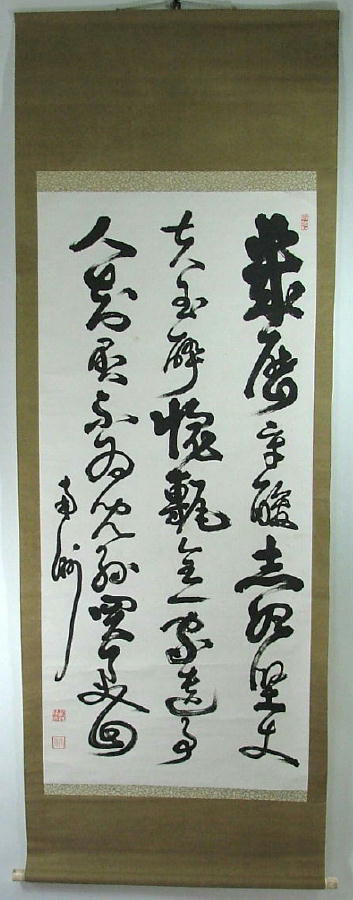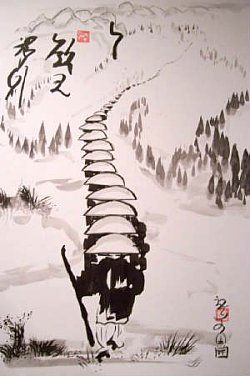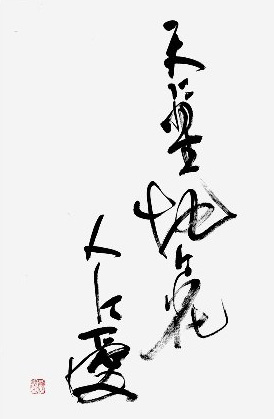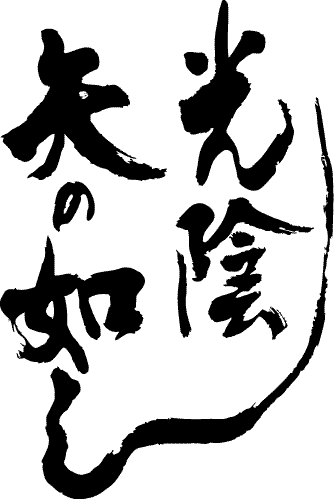 Flashback Friday...
Furuya Sensei posted this to his Daily Message on August 20, 2004:
Flashback Friday...
Furuya Sensei posted this to his Daily Message on August 20, 2004:
Calligraphy by Saigo Takamori, signed by his pen name Nanshu.
Saigo Takamori is considered the "real" Last Samurai. He lived during the complex end of the Tokugawa Bakufu in the mid-1800's. He is not famous because he was the victor or because he made a great deal of money - actually he lost the war and committed seppuku as his last troops were being defeated. All his life, he was quite poor and is known for having only one set of underwear and kimono. It is said that when they were being washed, he was naked and simply didn't see any guests until they dried.
What he is famous for is his loyalty to what he believed in - regardless if it was the winning or losing side, despite fame or fortune and "for richer or poorer" as I have heard somewhere.
When I view his calligraphy, I see great inner strength as well as gentleness. It is easy to see in his strokes that he doesn't not follow any popular way but is true to himself and his beliefs. This type of brush stroke is extremely hard to imitate when such a brilliant personality shines through so strongly.
Our Aikido should be the same - true to the Path and strong but at the same time gentle.
I know some of you will ask me, "How can something be strong and gentle at the same time?"
Of course - isn't this what we are trying find out in our practice? Who can answer such a question?







